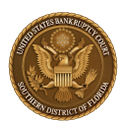(A) Valuation of Collateral Securing Claims.
(1) Valuation of Collateral. A chapter 13 debtor seeking to value collateral securing a claim in a chapter 13 plan pursuant to 11 U.S.C. §506(a) and Bankruptcy Rule 3012, must file a motion requesting such relief. If the collateral consists of real property, the debtor shall file the Local Form “Motion to Value and Determine Secured Status of Lien on Real Property.” If the collateral consists of personal property, the debtor shall file the Local Form “Motion to Value and Determine Secured Status of Lien on Personal Property.” The movant shall schedule the motion for hearing in accordance with this court’s self-calendaring guidelines, allowing for at least 21 days service of the motion and notice of hearing. The debtor must serve the motion, notice of hearing and the chapter 13 plan on the affected creditor in accordance with Bankruptcy Rule 7004.
(2) Objections to Debtor’s Declared Valuation. Any objections to the valuation of collateral contained in a chapter 13 plan and in a motion to value collateral must be filed with the court and served on the chapter 13 trustee, the debtor and counsel for the debtor, if any, at least two business days before the date of the hearing on the motion to value collateral. If no timely objection to the proposed valuation is filed, the valuation specified in the plan will be binding upon the affected secured creditor, and the debtor shall submit a proposed order. If the collateral consists of real property, the debtor shall submit a proposed order consistent with the Local Form “Order Granting Motion to Value and Determine Secured Status of Lien on Real Property Held By ____.” If the collateral consists of personal property, the debtor shall submit a proposed order consistent with the Local Form “Order Granting Motion to Value and Determine Secured Status of Lien on Personal Property Held By ____.”
(3) Hearing on Objections to Valuation. Objections to the debtor’s proposed valuation pursuant to 11 U.S.C. §506(a) shall be heard at the evidentiary hearing set on the motion to value collateral. The debtor shall submit a proposed order. If the collateral consists of real property, the debtor shall submit a proposed order consistent with the Local Form “Order Granting Motion to Value and Determine Secured Status of Lien on Real Property Held By ____.” If the collateral consists of personal property, the debtor shall submit a proposed order consistent with the Local Form “Order Granting Motion to Value and Determine Secured Status of Lien on Personal Property Held By ____.”
(4) Treatment of Unsecured Portion of Collateralized Obligation.
(a) If the creditor filed a proof of claim prior to the filing of the motion to value collateral, if the debtor has an objection to the claim, the debtor must file an objection to the claim at the same time, or prior to, the filing of the motion to value collateral. If the debtor does not file an objection to the claim, that portion of the debt that is found to be unsecured shall be allowed as an unsecured claim in the debtor’s chapter 13 case and be paid in accordance with the debtor’s chapter 13 plan. The order on the motion to value shall specify the amount of the creditor’s secured claim and the amount of the creditor’s unsecured claim.
(b) If the creditor did not file a proof of claim prior to the filing of the motion to value collateral, the creditor will have until the later of the claims bar date or 21 days from the date the motion to value collateral is served, to file a proof of claim for the unsecured amount of the claim, or the creditor will be deemed to have waived the right to payment of the unsecured claim. The creditor will participate in distributions on account of the unsecured claim only from the date the claim is filed, and the chapter 13 trustee will not be required to seek return of any portion of prior distributions to other unsecured creditors. The debtor or the trustee has the right to object to the proof of claim.
(B) Confirmation Process.
(1) Objections to Confirmation. Except for objections to confirmation based on valuation of collateral in the plan filed under section (A) of this Rule, objections to confirmation of the plan must be in writing and filed no later than 14 days prior to the date first scheduled for hearing on confirmation. Any timely filed objection shall constitute an objection to any amended plan. Should an amended plan be filed changing the treatment of any claim, the affected creditor may raise its objection orally at the hearing to consider confirmation of that amended plan.
(2) Deadline for Debtor to File Local Form Certificate. Prior to confirmation, Debtors must file the Local Form “Debtor Certificate of Compliance and Request for Confirmation of Chapter 13 Plan”.
(3) Order Confirming Plan. An order confirming plan shall contain the provisions addressing payment to tax certificate holders and requirements for tax collectors required under Local Rule 2083-1(A) and shall be served pursuant to Local Rule 2002-1(C)(11).
[Comment: See also Local Rules 6006-1(B) (confirmation order shall contain language regarding status of executory contracts or unexpired leases of chapter 13 debtors).]
